Careers +

Careers + is Ca’ Foscari’s strategy aiming at enhancing the quality of research, attracting new talents and consolidating scientific excellence in our University, as stated in the Strategic Plan 2021-2026.
Human Resources Strategy For Researchers
Ca’ Foscari has obtained the full Human Resources Strategy for Researchers certificate awarded by an international Evaluating Committee. The University is now amongst the Italian “HR Recognised Institutions” on the EURAXESS website.
The main purpose of the Strategy is to improve labour condition for researchers working at Ca’ Foscari, as well as the University attractiveness for Italian and international talents.
Attracting new talents
Scouting excellence and hiring high-profile – especially young - researchers is one of Ca’ Foscari’s main commitments, pursued through the Brain Gain Program. Our University aims at the strategic development of specific scientific sectors, also appointing researchers with international experience by direct recruitment.
Thanks to the portability option, high-qualification-research-program winners – such as ERC grantees – can be included in Ca’ Foscari’s team.
Incoming mobility of international excellent researchers is promoted as well through the funding of visiting fellowships and by supporting applications within the Rita Levi Montalcini Programme.
Continuing education in research
The research area promotes continuing education to research for students, PhD candidates, researchers, teachers and administrative staff.
Involving all the members of our University community is a key factor to strengthen present and future talents.
International Research Environment
Ca’ Foscari stands for its participation in competitive calls and networks funded by Programmes for research, cooperation, environmental protection and development of sustainable technologies to be launched on the market.
Over the last few years, our University has been hosting 200 research fellows per year, coming from 40 countries.
Moreover, the Institute for Global Challenges strengthens our commitment, promoting an interdisciplinary approach to research with an international scope.
Top host institution for Marie Curie Fellowships
Since 2014 Ca’ Foscari University has confirmed its performance as top Italian Host Institution for Marie Curie Fellowships granted, and is among the top institutions in Europe. We actively support researchers in making their profiles more competitive at a European and international level by participating in international calls, encouraging in particular individual calls, and provide assistance step by step, thus proving to be the host institution which can make the difference. Marie Curie Fellows at Ca' Foscari have also the possibility to constantly share their experiences with their peers in a strong community like the Marie Curie Alumni Venice Local Organisation.
Ca’ Foscari’s effort to sustain the career development of the researchers goes even beyond, and includes effective measures to make sure that Marie Curie Fellows achieve a competitive and mature position in the academic sector.
There is life after the Marie Curie Fellowship
- Marie Curie +1: Thanks to this internal selection procedure the winners of the Marie Curie Individual Fellowships who choose Ca’ Foscari as a host research institution can benefit from an additional paid year, so as to consolidate the results of their research as well as their position within the university.
- Researchers who have been awarded a three-year Global Fellowship may be offered a tenure-track position within three years after the end of the fellowship.
Some of our Marie Curie Fellows’ success stories
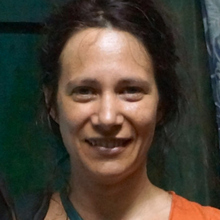
Valentina Bonifacio
She obtained the MSCA Fellowship in 2013 with a project called ArchFact: Building an archive of conflicting memories. A history of Carlos Casado's tannin factory in Paraguay (1889-2001). She was then the first in Italy to obtain a tenure-track position thanks to the MSCA fellowship, at Ca’ Foscari University Venice - Department of Humanities.
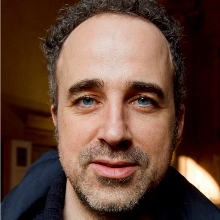
Matteo Bertelè
He was granted in 2017 a three-year Marie Skłodowska-Curie Global Fellowship thanks to the project GYSIART - "A cultural history of comparative art practices and receptions in Cold War Europe (1945-1991)”. During the project he obtained a tenure-track position at the Department of Philosophy and Cultural Heritage.
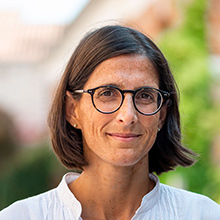
Enrica De Cian
She is Associate professor in Environmental Economics at Ca’ Foscari University of Venice (Italy) since December 2017 and ERC Starting grantee with the project ENERGYA – Energy use for Adaptation. In 2012 she was awarded a Marie Curie Fellowship at Boston University, US and Fondazione Eni Enrico Mattei, Italy.
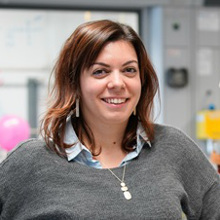
Giulia Fiorani
In 2013 she was awarded at ICIQ, Institute of Chemical Research of Catalonia, Spain, with a Marie Curie Fellowship for the project RENOVACARB: Novel applications of renewable based molecules for the preparation of cyclic carbonates and polycabonates. She has currently a tenure-track position as researcher at the Department of Molecular Sciences and Nanosystems, Ca’ Foscari University.
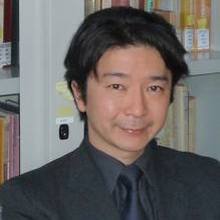
Toshio Miyake
He was awarded a Marie Curie Fellowship in 2011 with the project BETWATE: Beyond “the West” and “the East”: Occidentalism, Orientalism and self-Orientalism in Italy-Japan Relations. He is currently Associate Professor at Ca’ Foscari University, in the Department of Asian and North African Studies.
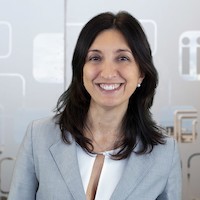
Arianna Traviglia
She was awarded with a Marie Curie European Fellowship – Reintegration Grant in 2015, for elaborating the research project VEiL - Visualizing Engineered Landscapes: an archaeological approach to unlock environmental resilience and sustainability in antiquity. She is now the Centre Coordinator of the Italian Institute of Technology - Centre for Cultural Heritage Technology (CCHT@Ca'Foscari).
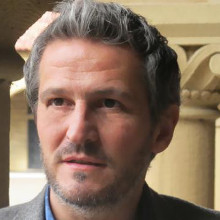
Diego Calaon
In 2014, he won a three-year Marie Skłodowska-Curie Global Fellowship with the project Voices of Venice, after which he obtained a tenure-track position at the Department of Humanities of Ca’ Foscari University.
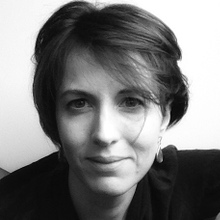
Alessandra Gilibert
She was granted in 2015 a Marie-Curie European Individual Fellowship for the project "COMPUS: Civic community and public space in the ancient Near East. The case of Hittite Anatolia at the end of the Late Bronze Age (14th-13th centuries BCE)". She has currently a tenure-track position as researcher at the Department of Humanities, Ca’ Foscari University.
Last update: 24/07/2024
